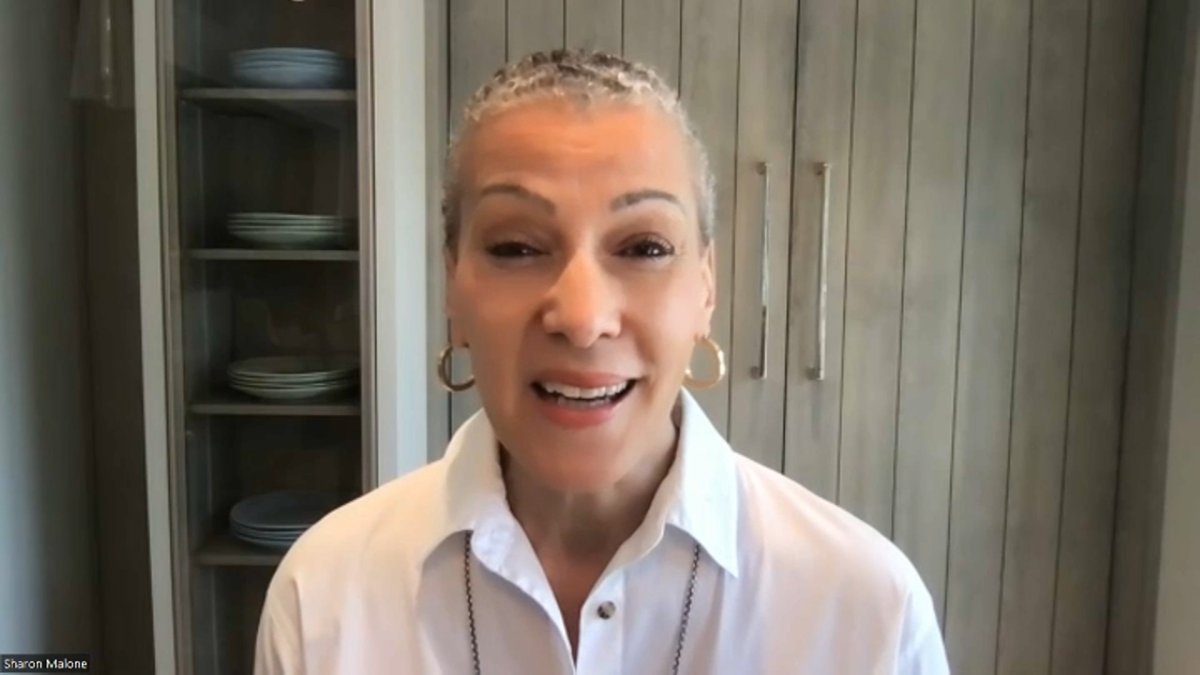
A doctor talks about common misconceptions about menopause and hormone replacement therapy. News4’s Doreen Gentzler reports.
A longtime OBGYN in the D.C. area says the latest research on the benefits of hormone replacement therapy could help women who have been reluctant to receive treatment.
Dr. Sharon Malone is the chief medical officer of Alloy Women's Health and the wife of former U.S. Attorney General Eric Holder.
She said the average age for menopause is 51, but many women experience symptoms like hot flashes, mood swings and insomnia years beforehand.
“One thing that I really want women to understand is that there are many, many, many symptoms associated with menopause, and they can start anywhere from four to 10 years prior to that last menstrual period,” Malone said.
We're making it easier for you to find stories that matter with our new newsletter — The 4Front. Sign up here and get news that is important for you to your inbox.
Former first lady Michelle Obama spoke with Malone about her menopause experience on her podcast, The Michelle Obama Podcast, in 2020.
“I experienced the night sweats even in my 30s,” Obama said. “Just hot flashes. I mean, I had a few before I started taking hormones.”
“I remember having one on Marine 1 … I'm dressed, I need to get out, walk into an event, and, literally, it was like somebody put a furnace in my core and turned it on high. Then, everything started melting and I thought, ‘Well this is crazy, I can't do this!,’” Obama said.
Health
“The value of having someone like Michelle Obama speak about menopause really takes it out of the shadows, makes women understand that this is not something that I should fear,” Malone said.
Malone said hormone replacement therapy is safe and effective for most healthy women and can offer some relief, but many remain reluctant to do it.
Much of the hesitation stems from a study conducted 20 years ago known as the Women’s Health Initiative, which linked hormone therapy to an increased risk of breast cancer, according to Malone.
“When that study was reported out, women were, of course, decidedly alarmed, Malone said. “But a lot of that information, particularly about the increased risk of breast cancer, has been walked back in many multiple studies since the Women's Health Initiative.”
Current research shows hormone replacement therapy can not only safely reduce menopause symptoms, but it can also reduce a woman's risk of developing osteoporosis and can help lower the risk of colon cancer and diabetes.
“At this point in our lives, we deserve to live our best lives and feel our best," Malone said. “Educate yourself and know whether or not this is something is right for you. I do not want women to get into the mindset that this is something that's terrible or to be dreaded, or that is something that you should merely suffer through.”
Hormone replacement therapy is not the right choice for every woman and there are still many questions being researched about the treatment. Those experiencing menopause should still speak with their physician to find out if the treatment is right for them.